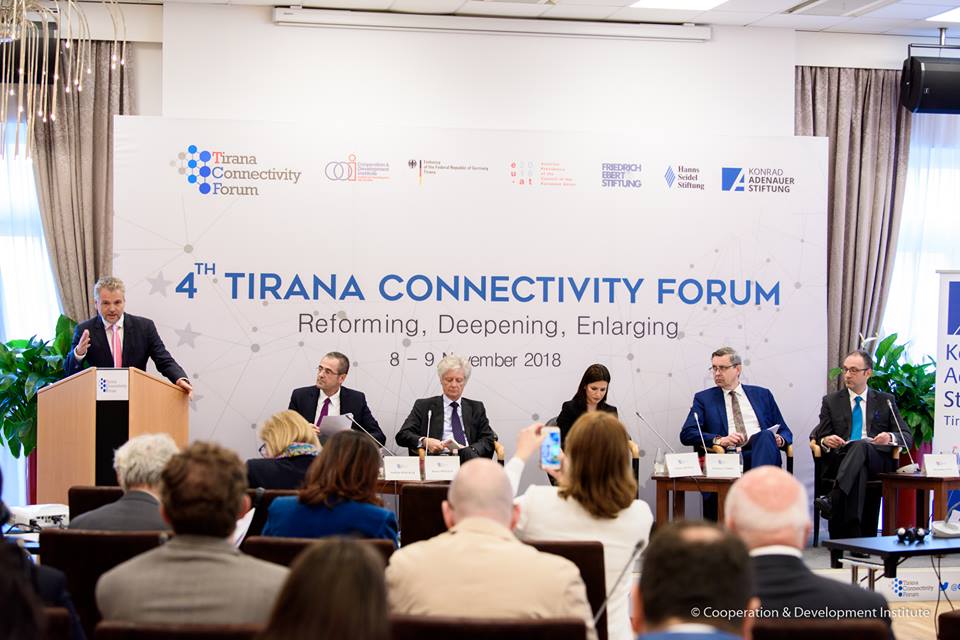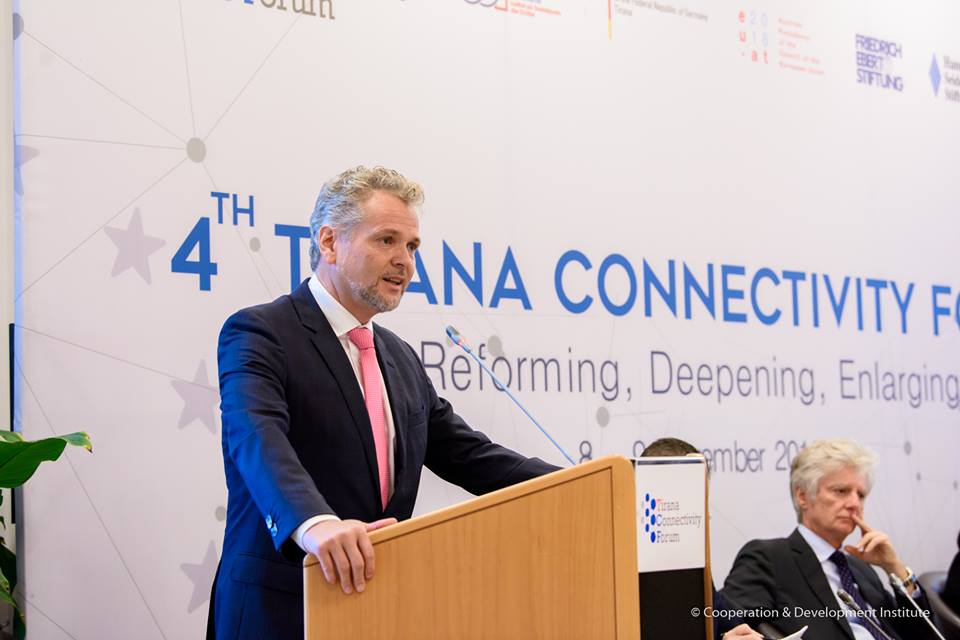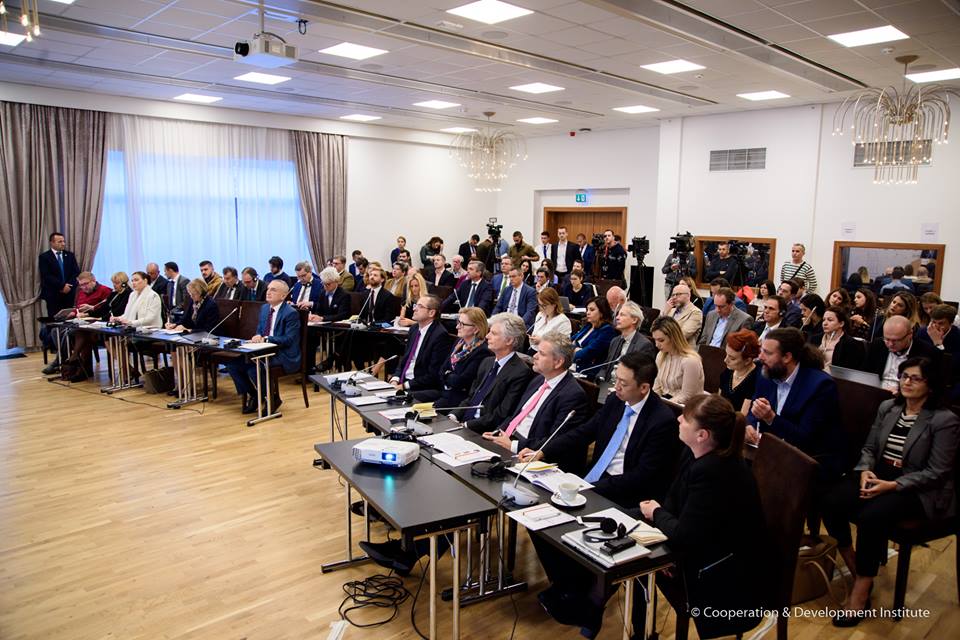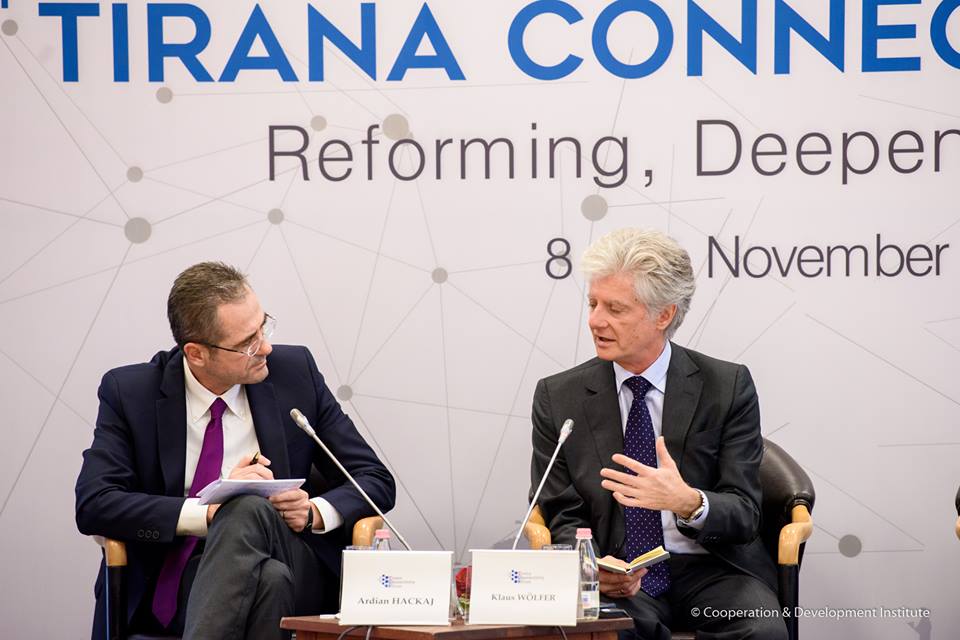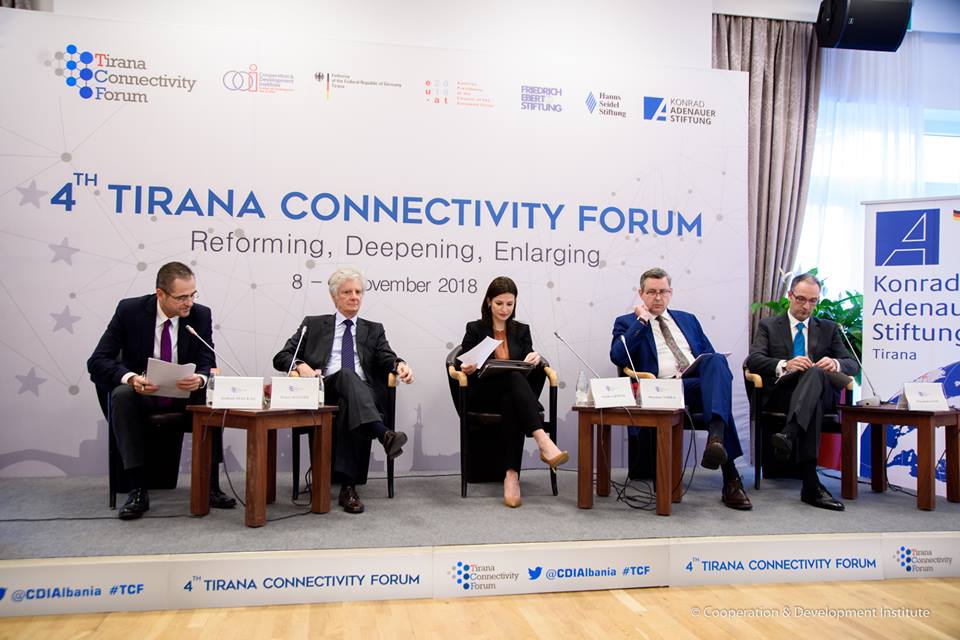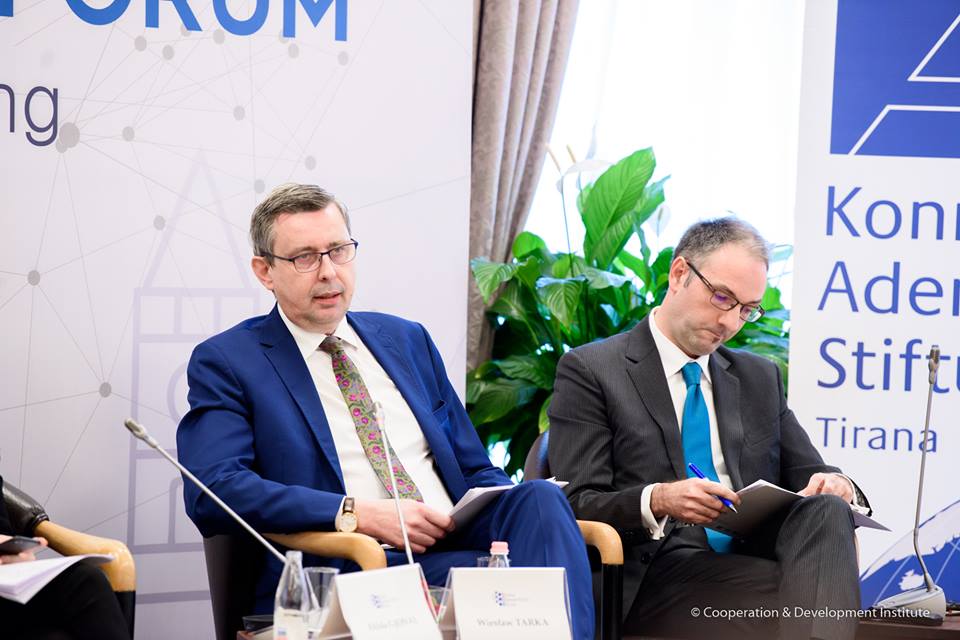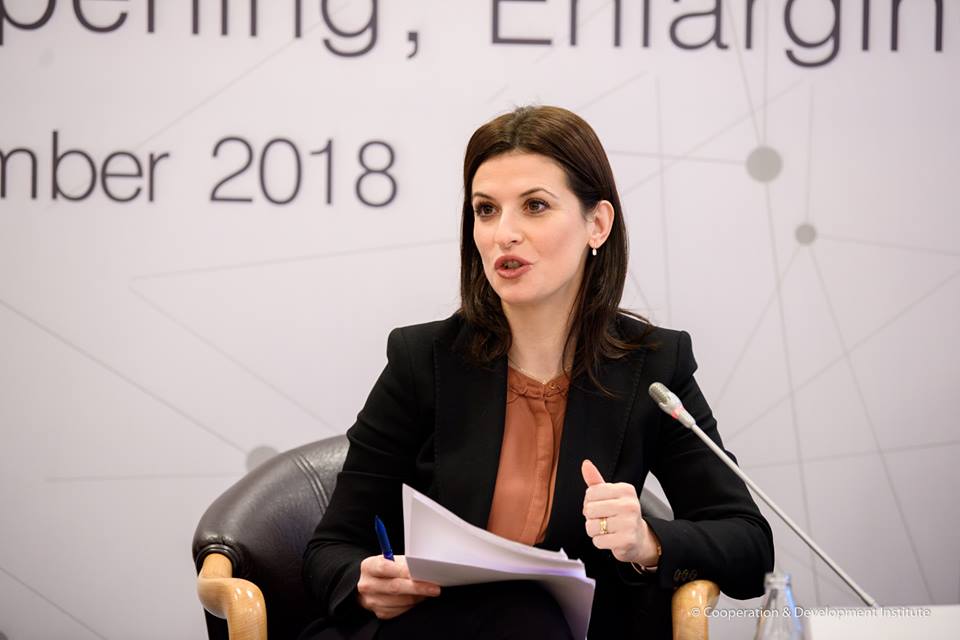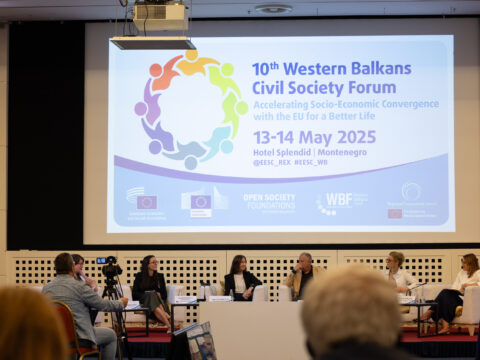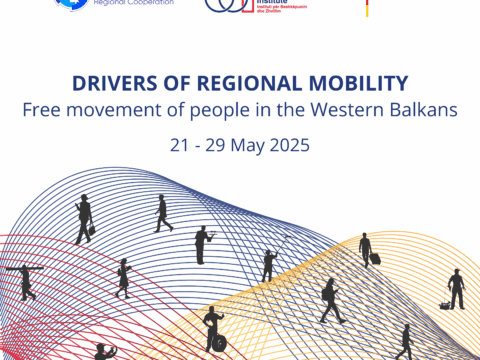The second day discussion focused on the importance of connectivity as a convergence mechanism that contributes to WB6 reforms and complements the normative & institutional approach of Enlargement.
Ambassador of Austria to Albania, H.E Johann Sattler, started with an assessment of the added value of the Berlin Process: ‘The Berlin Process Summits provide the platform for an enhanced policy engagement with all the WB6 countries. It is very good that it is broadening with Poland, but it would be even better if the immediate neighbours would be involved too in the organisation of the Summits. More local ownership will be needed to continue the second cycle of the Berlin Process, as it will give more weight to the Balkan countries. Summits can also be organised here in the region that would allow the Balkan governments to work together preparing the dossiers in between summits’. He than moved on the positive changes that the justice reform has brought to Albania, the need for a culture of compromise and cooperation for it to succeed, and its pioneering example set for the whole region. ‘This would help the Balkans to be seen not only as consumers of security but also, as contributors’, H.E Sattler concluded. “To succeed in the foreseeable future, two dimensions are important, the Domestic Front/reform and the Regional Front and regional cooperation… On the domestic front, what needs to happen, is a little less conversation and a little more action. On the regional front, a little less “potato wars”, a little bit more of diplomas recognition. And, from the EU side, one needs a little self-criticism, a little less preaching and little more encouragement.’
Dr. Etilda Gjonaj, Minister of Justice in Albania, gave a comprehensive view of the justice reform in Albania. ‘Albania has received a strong support from Germany, Austria, Netherlands, US, and of course the EU Commission. But the Albanian government decided that this reform was to be carried not only because it will help the EU negotiation process, but because it will serve to the Albanian citizens so that they can have a justice system that is independent, impartial, non-corrupted and free from political influences’ she emphasized. Until now the vetting has resulted in 32 re-confirmations, 26 discarded, and 15 resignations of judges and prosecutors leading to a justice system that strives to be impartial, professional and with more integrity. In this respect, CSOs are very important for the monitoring and visibility of Justice reform”. Minister Gjonaj in conclusion stressed: ‘We hope that June 2019 will also be a positive decision for Albania’s road to EU. A positive decision will immensely help us in the implementation of such a delicate and complex reform. I have been very happy to hear that the European Commission wants to replicate this reform in other countries in the region where the justice system has similar problems”.
As the Coordinator of the Berlin Process Summit in Poznan 2019 Poland, Ambassador Wieslaw Tarka, started by saying that: ‘having WBS in Poznan in a country that joined the EU after 2000 will be a powerful symbol and an inspiration for the WB countries. In our view, it is very important to build synergies between various formats supporting reforms, and fostering good neighbourly relations, to be able to help the WB in the most effective and as we hope, efficient manner”. The emphasis is on Poland sharing its experience on pre-accession, reforms and economic transformation. The 2019 WBS will take place the first week of July, in Poznan. In Spring 2019 a meeting of Ministers of Economy and of Foreign Affairs will be organised. Ambassador Tarka stated that ‘Connectivity and Economy are an absolute priority of the Poznan Summit, as they are crucial in supporting SMEs, innovation and implementation of REA. There will be EU-WB business forum, as side event of Poznan WBS, where entrepreneurship and digital agenda will its main themes. Polish Presidency will also introduce new themes of local government and cross-border cooperation, that will be developed and discussed in a Forum of Cities and Regions.’ Concluding, Mr. Tarka emphasized that: ‘Apart from the political dimension of the Poznan Summit, we would really much like to engage civil society, think tanks and youth NGOs and organize cultural events that would accompany the summi. Our aim is not only to hold a political event, but to bring our societies closer, and supportp2pconnectivity as well.’
‘Romanian Presidency of the EU in the 1st semester of 2019 will definitively be a strong and committed partner supporting a decisive, continuous and optimistic approach on the enlargement process’ stated Mr. Alexandru Ene, Director of Western Balkans and Regional Cooperation at Ministry of Foreign Affairs in Romania. Mr. Ene further continued by saying that ‘We want to make sure that the conditions are met, so the enlargement process is advanced as per the agreed terms… – in the Sibiu Summit the Enlargement will be in the agenda. But it is the reform pace of WB6 that dictates their pace of integration. Tangible results and concrete outcomes are required, and the European values remain the backbone of integration. The success of accession efforts is the responsibility of the political leaders in the region’. He then argued that from the Romanian perspective, the youth, and especially the brain drain is very important and one of the structural causes that delay the speed of country development. Mr. Ene stated that: ‘Romanian Presidency is to address the structural causes that impeded the reforms. Regarding Youth in May 2019 there will be a conference with focus on entrepreneurship, innovation, professional networks that cover both EU and WB6. There will also be an event on energy security and diversification’, he ended.
Austria, as the current Presidency holder of the Council of the EU, and as the host of the 2015 WBS in Vienna, has closely accompanied Western Balkans in their road to EU and in the Berlin process dynamics, and will continue to be so, assured Mr. Klaus Wolfer, Director of the Department of EU-enlargement and South-East Europe at the Federal Ministry for Europe, Integration and Foreign Affairs in Austria. Mr. Wolfer argued about the importance of the inclusivity of the WB. ‘Our Foreign Minister very much insists on calling the area not the Western Balkans, which is the current term, but the South-East Europe, reminding ourselves and everybody that this is part of Europe and not some different planet…In a globalized world, Enlargement should be put in perspective: after all we are talking about 3,5% of the current EU population that live in a small peninsula.’ Focusing more on what can bring the region forward, he added: ‘Parliaments are key. You just need a normal parliamentary life, to advance the reforms and to project this image that the whole country really wishes to join… It requires the unity of the country.’




